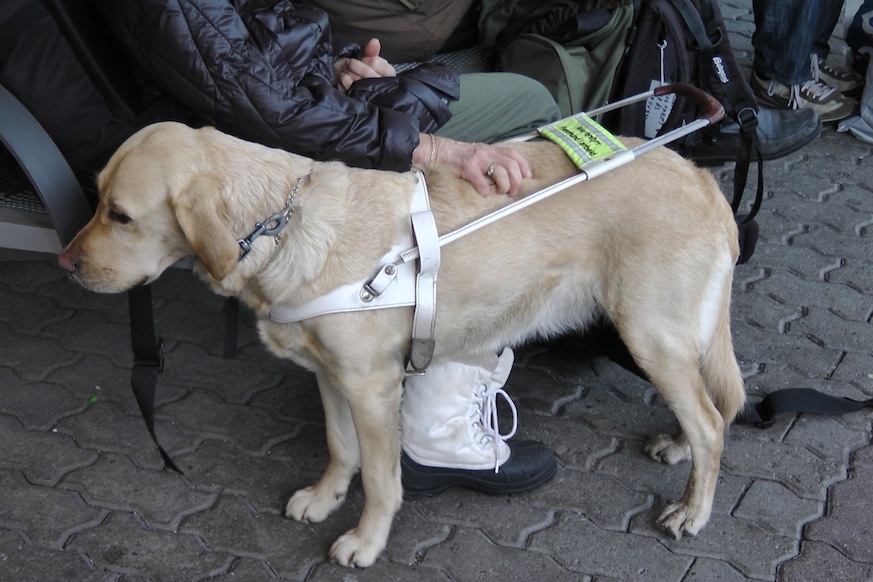A bill aims to crack down on fake service dogs, and those who train such animals will gather at the Massachusetts State House on Tuesday for a hearing.
For those who have certain disabilities, service dogs are an essential part of life and need to be with them everywhere they go. While any dog owner surely feels the same way, the reality is different and pets aren’t always welcome in the same spaces as service animals.
However, some pet owners reportedly pose their animals as “service dogs” so they can reap the benefits of keeping their animals by their side.
On Tuesday, a hearing will focus on a bill, presented by Rep. Kimberly N. Ferguson of Holden, that would impose a civil fine for anyone who wrongly says or implies that a pet dog is a service dog “in order to obtain the rights and privileges reserved for those disabled individuals working as part of a legitimate service dog team.”
Teams from NEADS World Class Service Dogs, a Massachusetts-based nonprofit that has trained more than 1,700 service dogs, will gather at the State House to show their support for that bill.
NEADS members have also actively been working with a committee to help get that bill passed.
“The passage of this bill is extremely important to our clients, as well as to all individuals with disabilities that face ongoing challenges because of the problem, and now proliferation of fake service dogs gaining public access,” NEADS CEO Gerry DeRoche said in a statement.
Fake service dogs have been reported in various scenarios, according to NEADS, including people who buy their own “vest and credentials” for their dog to misrepresent their service dog status.
Some people or groups also claim to train service dogs but do not do so accurately, according to NEADS, leading to “poorly trained, poorly socialized dogs who become a danger or burden to their partner.”
NEADS also aims to clarify that therapy dogs, comfort dogs and support dogs are not considered service dogs, according to law.
“All legitimate service dogs must be trained to do work or perform tasks for the benefit of an individual with a permanent disability,” according to the nonprofit. “This task work must be directly related to that individual’s disability.”
The bill is important, NEADS says, because by lessening the number of dog owners who disguise their pets as legitimate service dogs, businesses can better protect legitimate service dogs and their owners, and the service dog industry will become more credible.



















